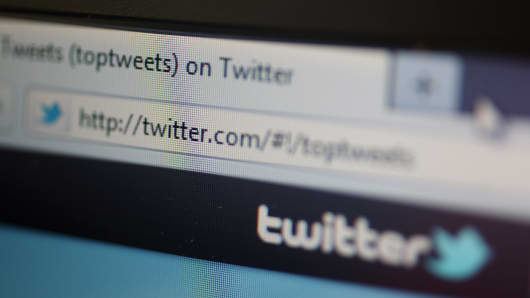Twitter has been saying it for years: engagement on Twitter about content on TV drives ratings. Now Nielsen has released a study that supports that thesis. This data should help TV programmers reference high Twitter engagement to boost advertising rates, even if ratings aren't particularly high, and should make Twitter a more valuable tool to marketers. And that should help the company grow its revenue in this crucial phase ahead of its expected S-1 filing for an IPO.
"It's significant because, for the first time, Nielson is pointing out that that conversation can be measured and now TV networks can begin to get credit for the conversation around their shows," says Twitter's head of TV Fred Graver saying in an interview with CNBC. "And they, they can begin to make money off of the, the conversation around their shows on Twitter."
(Read More: Why Twitter's 'troll' trouble could hurt its IPO prospects)
The headline of the press release "New Nielsen research indicates two-way causal influence between Twitter activity and TV viewership," is supported by data that "Tweets can influence Tune-in Rates While TV Programming Drives Twitter Activity." The language is still far from definitive—note the use of the term "can"—as it's not a sure thing.
But it's still a big step for Twitter, especially as the company prepares to launch Nielsen Twitter TV Ratings starting this fall. Some data:the volume of Tweets caused "significant changes in live TV Ratings among 29 percent of the episodes." Less surprisingly, highly rated shows generate more tweets: "Live TV ratings had a meaningful impact in related Tweets among 48 percent of the episodes sampled."
(Read More: Government requests for Twitter users' data on the rise)
The challenge—Nielsen doesn't quantify Twitter's impact—there's no calculation that a 50 percent surge in Twitter activity about a show drives any proportional increase in ratings. Another caveat: the increases in TV ratings may cause more people to tweet more often "because there are more people available to tweet about a show, or because more compelling content [which drives ratings also] drives people to tweet more often.
But Twitter is already hard at work to turn these results into advertising dollars. "What it means for the networks is that ... we are innovating with them, we're creating with them, my team works with them, we are finding new ways every day in building an audience on Twitter," says Twitter's Graver. "What's important to the networks is that now that audience becomes engaged, loyal, they intend to tune in—they do tune in and the other side for networks is using products like our ad sales ... so they can directly profit from the, the content that they, they distribute and that gets shared on Twitter."
Check out my blog: mediamoney.cnbc.com
—By CNBC's Julia Boorstin. Follow her on Twitter: @JBoorstin



